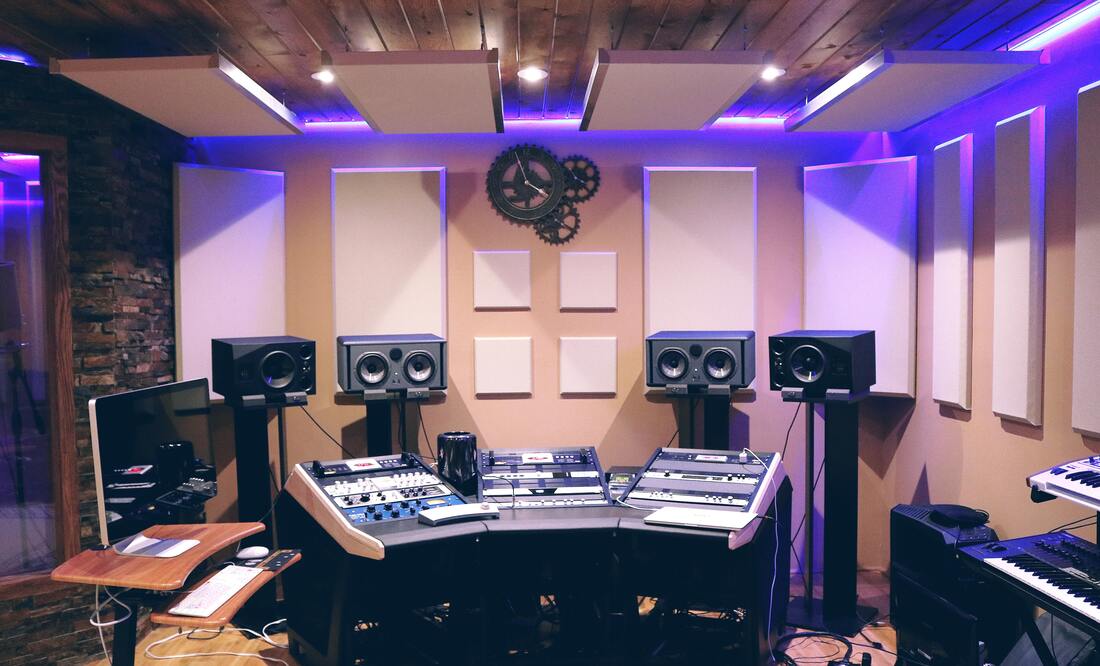 Between recording/editing your music and distributing it, there are two discrete processes that will be done to your recording: mixing and mastering. Both mixing and mastering are highly specialized processes in music production. But, they are not the same. Mixing involves (among other things):
Whereas mixing deals with working with each channel (instruments and voices), mastering deals with the overall sound, including:
As you can see, these two processes involve very different tasks. When done properly, they involve different software and tools. And - when you want high-quality, precise results - very different skills of the engineers. That's why mixing and mastering for national recordings are usually done by separate people. Mixing and mastering each have their iconic engineers who are specialists in just the mixing or mastering segment. For example, Chris Lord Alge is one of the most well-respected mixing engineers. And Ted Jensen is equally legendary as a mastering engineer. Mixing icons don't dabble in mastering. Mastering icons don't dabble in mixing. This is for two main reasons. First, mixing and mastering are different specialties. The people who are great at one really know the intricate details of performing it from doing it - and nothing but it - day after day on a very high level. Second, and perhaps most importantly, separating the two processes enables you to get the multiplied benefit of having not one - but two - music professionals contributing ideas, expertise and work to make your music sound the absolute best it can. So, in summary, mixing and mastering are different. As you make decisions on choosing mixing and mastering engineers, it's helpful to be able to hear the difference that each process makes. Whether it's your own music or the music of a friend, listen to pre-mixed and mixed recordings back to back. Listen to pre-mastered and mastered recordings back to back. Over time, you will understand the difference between the processes, the value of the processes, and which mixing engineers and mastering engineers can do the best job for you. Despite the fact that national recordings are almost always mixed and mastered by separate people, you will see people on a local level - who aren't great at either mixing or mastering - offering both services. We're not definitively saying that this can't turn out OK for you. But, by having these two services performed by a single generalist, you are forgoing an opportunity to have the benefit of having two music production professionals teaming up to give your recording the most ideas and the best treatment possible. Therefore, it's key to know what mixing and mastering processes are and how they can give your music the most enhancement for your money. Of course, because Before and After Music Group specializes in mastering, we'd welcome the opportunity to be your mastering studio of choice! Contact us at 412-600-8241 or beforeandaftermusicgroup@gmail.com to discuss your project and how we may be able to help your music sound as professional as possible.
0 Comments
 There are a lot of variables that go into the cost of professionally recording and releasing an album. Whether you self-produce or hire a professional producer, how many modern production techniques you use, and how much perfection you seek in your takes all play a role and make it difficult to give you a one-size-fits-all number. However, there are some commonalities in what I'd consider a "typical" recording process that can help you get on the dartboard, if not hit the bullseye, when estimating the cost of your next album. So, I will focus this article on a "typical" situation, giving you the caveat that mileage may vary in your particular situation. This approach assumes that you'll be recording with an engineer, but not a separate producer. A producer, in a professional sense, takes a very hands-on approach with the artist: co-writing and arranging songs, changing parts, rehearsing and coaching performances, etc. The compensation for that type of pro producer is usually quite high and, therefore, will not be a part of this calculation. First, let's talk about four variables that you need to get values for before beginning the calculation of your recording and release costs. Those are: A. Studio Hourly Rate (SHR): Most more professional studios will charge an hourly rate, many of which range between $50 and $75 per hour. If it's a studio where noteworthy national acts record, that rate can go way up. Some studios may only offer "blocks" of hours, like a half day/4 hours or full day/8 hours. In those cases, just divide the block cost by the number of hours you get to determine the hourly rate. We'll be doing a lot of multiplying by the SHR, so make sure you get actual numbers and don't assume what you'll be charged. B. Number of Songs (NS): This is simple - how many songs are you going to record? C. Number of Drum Days (NDD): In the recording of many albums, usually drums are tracked first and tracked all at once as opposed to the band laying down a whole song before starting a new song. One of the reasons for this is that drum set up takes a long time. We'll get to that in more detail in a minute. But, for now, focus on estimating the number of days you will spend recording drums. This may vary but, in my experience, five songs is kind of the maximum number of average-length songs for which you can track drums in a single day. So, even if you only are recording six songs, if you use five songs as the max per drum day, you will need two drum days. There is no fraction of a drum day...if you set the drums up, it's a full drum day. D. Number of Parts (NP): Now, you need to think of breaking down the number of parts your songs have. A drum track is one part. A bass track is one part. Each guitar track is one part. An overdubbed guitar solo is one part. A lead vocal track is one part. A backing vocal track where all members of the band sing at the same time is one part. If you have harmony vocals where three different band members will record three different parts separately, those would be three parts. Whatever instrument or voice needs to be recorded on its own track represents a discrete part for the purpose of this calculation. Now that you've determined values for these variables, you can start plugging those variables into a calculation. The calculation is a master calculation separated into sub-calculations for five of the phases of recording and releasing music: Tracking, Editing, Mixing, Mastering and Distribution. 1. The Cost of Tracking First, you need to calculate the set up time for the drums. For first time recorders, this cost can be an unpleasant surprise as it can often take around two hours just to set up the drums, get them mic'd, get them sound checked, etc. So, multiply the number of drum days by the studio hourly rate by two: NDD x SHR x 2. This is your drum set up cost. Next, understand that - in my experience - it takes around an average of a half-hour per part per song if you're reasonably prepared. If you're not, it can take much longer. So, let's count on you being reasonably prepared. So, multiply your number of songs by the number of parts by the studio hourly rate by 0.5 (i.e., a half-hour): NS x NP x SHR x 0.5 This is your parts recording cost. Add the drum set up cost to the parts recording cost to get your cost of tracking. Expressed algebraically, this would be ((NDD x SHR x 2) + (NS x NP x SHR x 0.5)) 2. The Cost of Editing Editing involves a lot of things. Taking noise out in the silence between parts, tuning vocals, quantizing drums and other things. In my experience, the average song requires about two hours of editing. (NS x SHR x 2) 3. The Cost of Mixing Mixing times can vary. I've witnessed professional mixing done in as little as three hours per song (for a full band) to as many as 10 hours per song. I will plug three hours into the formula. Ask your recording engineer for the typical amount of mixing time he/she/they spend and use that number instead. (NS x SHR x 3) 4. The Cost of Mastering Mastering costs can vary wildly. The mastering studios that major labels use can run thousands of dollars per song. The mastering studios that indie labels and independent artists use will typically run between $50 and $150 per song. Before and After Music Group's mastering services, are on the lower end of that price scale but the upper end of the quality scale. As I've written about before, there is a huge benefit to identifying your preferred mastering studio BEFORE you even begin recording. So, reach out to a mastering studio sooner rather than later and learn your price. (NS x Per Song Mastering Cost) 5. The Cost of Distribution There are several digital music distribution service providers out there who can get your music on Spotify, Apple Music, Amazon, etc. Their prices are often in the form of a per-album fee or an annual subscription. Per album fees can be lower but, if you are planning several releases in the same year, an annual subscription may make more sense. There are other differences, so I encourage you to research the many options and go with the one that fits best with your objectives. Because both per album and annual subscription rates top out at around $30 (US), just use $30 for the sake of calculating the cost of distribution. The Master Calculation You need to add the costs of Tracking, Editing, Mixing, Mastering and Distribution together to come up with an estimate of the total cost of your project (not including the manufacture of physical products like CD's or vinyl). Combined together, the calculation (in US dollars) is: ((NDD x SHR x 2) + (NS x NP x SHR x 0.5)) + (NS x SHR x 2) + (NS x SHR x 3) + (NS x Per Song Mastering Cost) + 30 Because many musicians don't release how long it takes to set up drums, or how long it takes to track a three-minute song, or how much editing is involved, this calculation may make it seem like it is more expensive than anticipated to record and release an album. But, hopefully, having this calculation - put together after lots of experience - will enable you to more accurately estimate your costs and avoid unpleasant surprises. Before and After Music Group specializes in music mastering. We'd love for you to consider us to help get your music to reach its sonic potential. Contact us! |
AuthorChip Dominick is the CEO and head mastering engineer for Before and After Music Group Archives
June 2023
Categories
All
|

 RSS Feed
RSS Feed